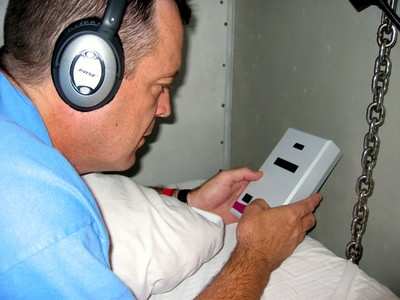Wed, Aug 22, 2007
Advertisement
More News
 ANN's Daily Aero-Term (11.19.25): Option Approach
ANN's Daily Aero-Term (11.19.25): Option Approach
Option Approach An approach requested and conducted by a pilot which will result in either a touch-and-go, missed approach, low approach, stop-and-go, or full stop landing. Pilots >[...]
 Aero-News: Quote of the Day (11.19.25)
Aero-News: Quote of the Day (11.19.25)
"Emirates is already the world's largest Boeing 777 operator, and we are expanding our commitment to the program today with additional orders for 65 Boeing 777-9s. This is a long-t>[...]
 NTSB Final Report: Sting Sport TL-2000
NTSB Final Report: Sting Sport TL-2000
(Pilot) Reported That There Was A Sudden And Violent Vibration Throughout The Airplane That Lasted Several Seconds Analysis: The pilot was returning to his home airport at an altit>[...]
 Aero-News: Quote of the Day (11.20.25)
Aero-News: Quote of the Day (11.20.25)
“This recognition was evident during the TBMOPA Annual Convention, where owners and operators clearly expressed their satisfaction with our focus on customer service, and enc>[...]
 ANN's Daily Aero-Term (11.20.25): Overhead Maneuver
ANN's Daily Aero-Term (11.20.25): Overhead Maneuver
Overhead Maneuver A series of predetermined maneuvers prescribed for aircraft (often in formation) for entry into the visual flight rules (VFR) traffic pattern and to proceed to a >[...]
blog comments powered by Disqus





